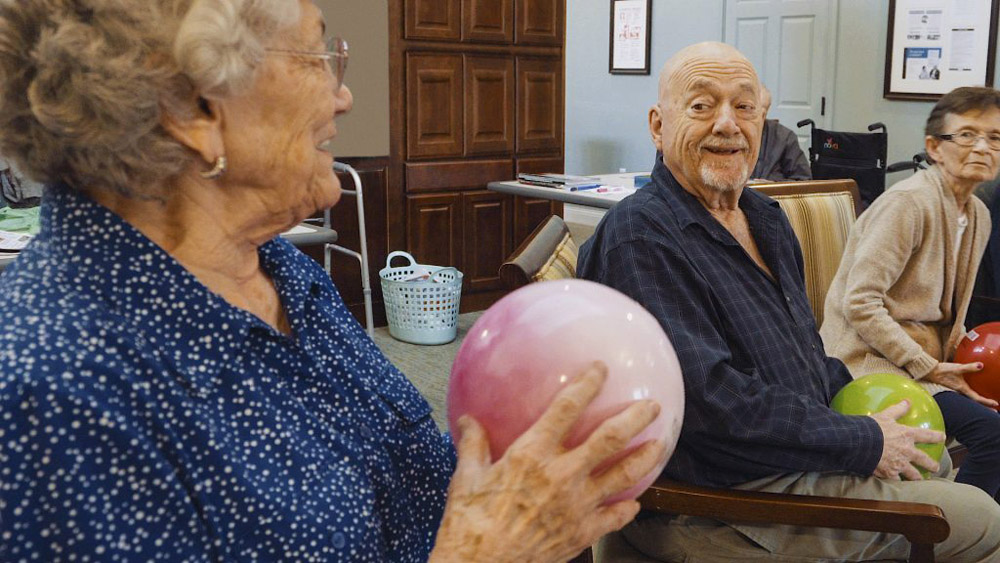Discover Compassionate Memory Care: Enhancing Lifestyle for Loved Ones
The journey of taking care of an enjoyed one with cognitive problems provides special challenges that can greatly impact family dynamics and emotional wellness. Caring memory care centers use an organized, helpful atmosphere created to resolve these difficulties while boosting the lifestyle for citizens. By concentrating on individualized care and purposeful interaction, these centers not only boost those influenced by problems like Alzheimer's and dementia yet also provide comfort for family members. As we discover the essential components of caring memory care, it comes to be clear that understanding these alternatives can make a substantial difference in the lives of all involved.

Comprehending Memory Care
Understanding memory care involves identifying the specific support and solutions created to help people with cognitive problems, such as Alzheimer's disease and various other forms of dementia. Memory care facilities concentrate on producing a secure and organized environment that advertises the health of residents while addressing their distinct cognitive challenges.Key parts of memory care include educated personnel who are well-informed regarding the intricacies of dementia and related disorders. These specialists employ evidence-based methods to boost cognitive function and preserve dignity via individualized care plans. The physical setting is additionally customized to minimize complication and promote familiarity, often including safe and secure areas to avoid wandering. Memory Care Charlotte.Moreover, memory care highlights social interaction and purposeful activities that promote cognitive abilities and foster links among citizens. This approach identifies the importance of preserving social interactions to deal with isolation usually experienced by individuals with memory loss.Families play a crucial role in memory care, as their involvement helps produce a supportive network that improves the lives of citizens. By recognizing the customized nature of memory care, family members can make informed choices to boost the lifestyle for their loved ones facing cognitive disabilities
Secret Features of Compassionate Care
Caring care in memory care setups is defined by an alternative technique that prioritizes the psychological and mental well-being of homeowners. Key features of this method consist of embellished care strategies customized to each resident's unique requirements, preferences, and biography. This personalization cultivates a feeling of identification and belonging, which is crucial for those experiencing cognitive decline.Another essential function is the presence of qualified team who are not only experienced in mental deterioration care but also compassionate and compassionate. These caretakers participate in purposeful communications, utilizing techniques such as validation treatment to attach with residents and lower feelings of disappointment or anxiety.Additionally, thoughtful care environments focus on sensory excitement and restorative activities that reverberate with locals' interests. This might include art therapy, music sessions, and memory tasks, all created to enhance cognitive function and psychological connection.Furthermore, family members involvement is urged, permitting enjoyed ones to take part in care activities and sustain their relative's emotional requirements. Eventually, the crucial features of compassionate care develop a setting where residents feel secure, valued, and comprehended, significantly enhancing their high quality of life.
Advantages for Homeowners and Family members

Activities That Foster Involvement
Purposeful activities play a necessary duty in fostering engagement among citizens in memory care settings. These tasks not only boost cognitive feature yet likewise advertise social interaction, psychological wellness, and a feeling of function. Tailored programs that consider residents' rate of interests and capacities are necessary for taking full advantage of involvement and enjoyment.Creative searches, such as paint, crafting, or songs treatment, motivate self-expression and can stimulate positive memories. Structured workout sessions, consisting of chair yoga or strolling teams, enhance physical health while giving possibilities for socializing. Additionally, memory therapy, which entails going over previous experiences and noteworthy life occasions, can strengthen connections in between homeowners and caregivers.Incorporating interactive games, challenges, and also horticulture can further boost cognitive interaction and foster synergy amongst residents. Frequently set up group tasks, such as movie evenings or themed events, develop a feeling of neighborhood, allowing residents to build relationships and share experiences.Ultimately, the application of varied activities customized to private choices is important in memory care. By promoting involvement through significant programs, facilities can greatly improve the lifestyle for homeowners, guaranteeing they feel valued and attached within their area.
Picking the Right Memory Care Facility
Picking a memory care center involves careful consideration of various aspects that affect the well-being of locals. Begin by examining the facility's total setting, making particular it is risk-free, welcoming, and developed to decrease complication. Try to find rooms that motivate social interaction while offering personal privacy for individual reflection.Next, evaluate the qualifications and training of the personnel. Caring for individuals with memory disabilities calls for specialized expertise. Verify that personnel participants receive recurring training in dementia care and use compassionate interaction techniques.Additionally, take into consideration the variety of solutions offered, such as individualized care strategies, healing tasks, and support for relative. A center that emphasizes alternative care can considerably boost the high quality of life for residents.Visit possible centers to observe communications in between personnel and citizens, and ask regarding their approach to engaging those with memory challenges. Examine reviews and look for recommendations from health care specialists or neighborhood assistance groups.Lastly, think about the facility's click over here now location and availability for household visits, as routine contact can enhance residents' psychological health. By taking these aspects into account, you can make a well-informed choice that finest sustains your liked one's demands.
Often Asked Inquiries
What Qualifications Do Memory Care Personnel Usually Have?
Memory care staff normally hold certifications that consist of specialized training in dementia and Alzheimer's care, along with certifications in emergency treatment and CPR. Numerous have histories in nursing or community service, providing them with vital abilities in client analysis and emotional support. Dementia Care. Additionally, ongoing education and learning in behavioral administration methods and interaction techniques prevails, making certain team continue to be adept at addressing the distinct demands of individuals with cognitive disabilities while promoting a supportive environment
Exactly How Can Households Take Part In Their Loved One's Care?

What Is the Cost Variety for Memory Care Providers?
The expense variety for memory care services can differ significantly based upon elements such as location, center services, and degree of care needed. Generally, households might anticipate to pay in between $4,000 and $8,000 monthly. Additional services, specialized programs, and personal lodgings can even more influence prices. Dementia Care. It is a good idea for families to completely research study and go to centers to understand what is consisted of in the fees and check out financial support options readily available
Exist Particular Dietary Options Available for Locals?
Yes, many memory care centers offer tailored nutritional alternatives to meet the specific nutritional demands of residents. These alternatives commonly think about various nutritional limitations, such as diabetes mellitus, heart health and wellness, or allergies. Facilities commonly utilize accredited dietitians to create meal plans that advertise overall wellness while thinking about private choices. In addition, household members are typically urged to take part in discussions regarding dietary selections to assure that their loved ones' tastes and requirements are appreciated.
How Are Emergency Situations Dealt With in Memory Care Facilities?
Emergencies in memory care facilities are taken care of via developed methods designed to guarantee resident security and quick action. Staff are educated in emergency treatments, including emergency treatment and discharge strategies - Memory Care Charlotte. Facilities conduct normal drills to get ready for different scenarios, such as clinical emergency situations, fires, or natural calamities. In addition, interaction systems remain in location to alert team and emergency solutions without delay, guaranteeing that locals obtain immediate attention and care during critical circumstances